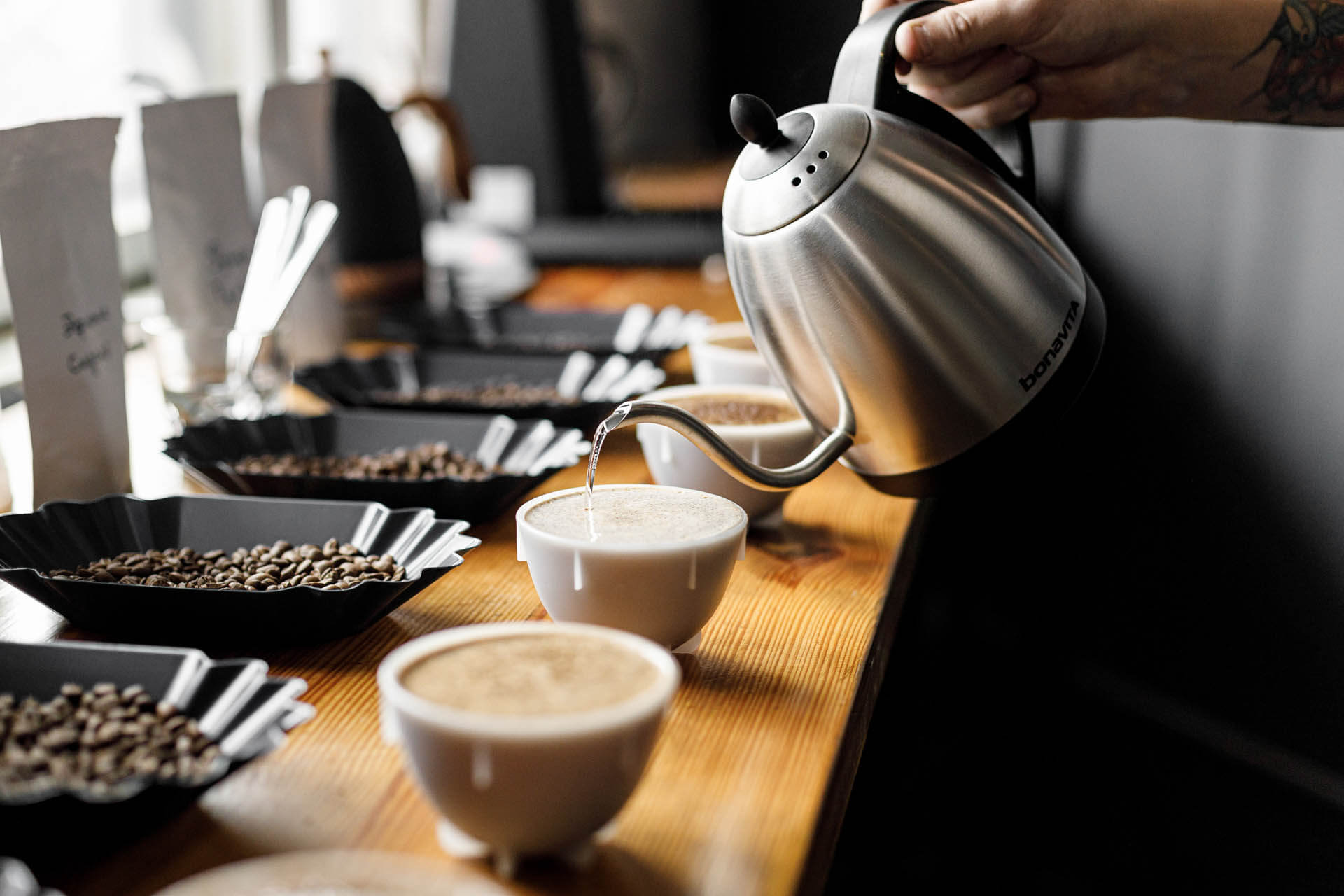Specialty Coffee?
Nowadays, you can encounter the term 'Specialty Coffee' everywhere. This term often raises surprise and questions for many. It's not just a catchy name, not a trend, and not a mere marketing move. Currently, Specialty Coffee is a rather rare type of coffee, accounting for less than 10% of the total Arabica production.
For a more detailed explanation of this concept, one needs to trace the journey of a coffee bean from the plantation to the consumer's cup. Before coffee reaches your cup, it goes through numerous stages. Farmers cultivate coffee berries, harvest the crop, sort the berries, extract beans from the fruits, dry, process, package, transport to the roaster, and only then does coffee reach you. Any mistake or negligence at any stage can prevent the coffee from obtaining the Specialty Coffee classification. Only if all processes are carried out with minimal errors can the product be assigned the Specialty class.
From all this, one can conclude that Specialty Coffee is coffee considered a premium class. It's not even all the coffee from a farm, but a certain percentage of it. However, the better-tuned the process, the larger the portion of coffee from the farm falls under the Specialty classification.
The journey from coffee berry to cup involves various stages starting from the farm where it is cultivated. The planted seed transforms into a tall tree, reaching over 10 meters in height. Flowers appear on the tree, turning into coffee berries, which are then harvested once they ripen. While the initial stages may resemble fruit cultivation in rural areas, the coffee process involves complex and refined procedures.
Farmers aim to provide the Arabica trees with optimal conditions for growth. They monitor soil health, supply essential nutrients, and combat pests. However, these efforts are insufficient for the coffee to achieve Specialty status; only ripe berries from the entire harvest receive this distinction.
After harvesting, the berries are quickly transported to processing areas to prevent spoilage, which could impact the final grain quality. During grain processing, careful cleaning and uniform drying on special beds are essential. Even slight damage during this stage can render the batch unusable.
Following processing, coffee needs to age, requiring specific storage conditions regarding temperature, humidity, and light exposure. The next step involves packaging and shipping to the roaster. Any error at this stage can adversely affect the product.
The main challenge in this entire process lies in the human factor. Issues such as a worker's first day, family problems, or lack of sleep can introduce errors at any stage. Even if the coffee is grown and processed perfectly, a mistake during transportation, packaging, roasting, or brewing can compromise the Specialty class, which does not guarantee a truly unique taste. Considerations also include the experience of roasters and baristas, storage conditions, and how the coffee is ground.
Who Decides What is Specialty Coffee?
Specialty status is not assigned to every coffee and is independent of the coffee type or variety. For instance, the "Ethiopia Sidamo" of 2017, having Specialty status, does not guarantee the same classification in 2021, even if grown and processed in the same manner on the same farm. The profession of a Q-grader comes into play, determining whether a specific coffee qualifies as Specialty. These experts undergo rigorous certification, evaluating processing quality, drying processes, and checking beans for defects. Without this evaluation, no farm or coffee can attain Specialty status.
The grading system employs the Q grade system, with a maximum score of 100. A coffee must score a minimum of 80 points to earn the "Specialty" title. Coffees scoring 90 points and above enter championships and limited roasting but may not enter mass production. For 350 grams of coffee, there should be no blackened or moldy beans, and no more than 5 beans may be cracked, broken, or damaged by insects.
Considering this small piece of information about grading, one can imagine the meticulousness involved in the coffee processing and preparation on farms. Specialty is typically associated with Arabica, while Specialty Robusta is gaining traction.
Specialty Coffee for Consumers
For consumers interested in buying Specialty coffee beans, emphasis is placed on freshness. Choose recently roasted coffee over older batches. It should be stored in airtight packaging with a valve, preventing light and oxygen exposure.
Grinding should be done just before brewing to minimize interaction with oxygen. Manual grinders with grind control are recommended over blade grinders for a more even grind. Consistency in water-to-coffee ratios, extraction time, and water temperature during brewing is crucial. These are standards, recommendations, and opinions, and the ultimate judgment of the taste rests with the individual. Remember, you are the expert of your own palate. While others may not experience the exact taste you do, our team is happy to assist in selecting coffee for every guest and client.
Author: Hutnyk Vladyslav.
